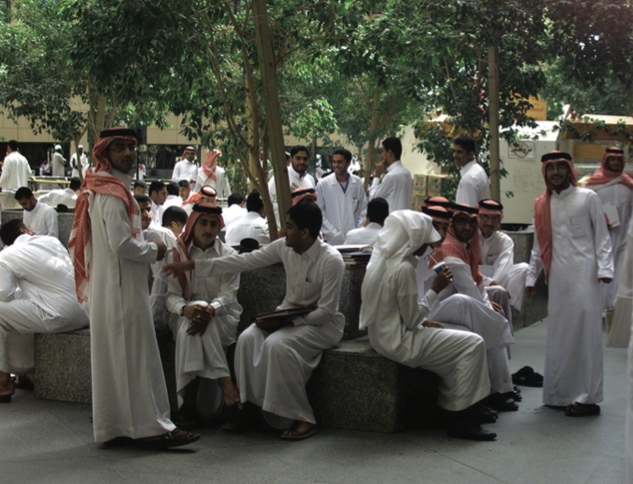Arab economies are experiencing a historic boom, but whether or not prosperity continues will depend on their ability to generate jobs for millions of young people seeking employment. In countries throughout the region, labor forces are growing at up to 4% annually, and Arab economies will have to create a total of around 60 million jobs over the next decade to bring the rate of unemployment down to the global norm.
Due to the boom, in the last five years unemployment in the Arab world fell to around 11%, but the rate of joblessness for people aged 15-24 is more than 25% — roughly twice the world average. One complication is that in some countries, mainly the smaller Gulf sheikhdoms, most new jobs have gone to foreigners.
However, this phenomenon is not limited to the rich oil- producers: in Jordan, for example, many new jobs go to non- nationals, especially garment and domestic workers from South and East Asia, as well as construction laborers from Syria and Egypt. In fact, the prominence of foreigners in employment is higher in Jordanian private businesses — a hoped-for source of job-creation — since nationals dominate public sector jobs. This phenomenon is replicated to some extent in Lebanon, with the Lebanese penchant for youth emigration acting as a safety valve. Yet, even there many young people stay at home and aggravate the unemployment situation.
An explanation of this complication in the labor markets of poorer Arab countries is that “educated young people are in effect playing the lottery,” according to Marcus Noland and Howard Pack in their recent article “Arab Economies at a Tipping Point,” by remaining unemployed at home, waiting for either a high- paying job in an oil state or a visa that would permit emigration to the West. The unwillingness of Lebanese, Jordanians, and other Arabs to fill less attractive jobs in their own countries, even at the risk of idleness, drives unemployment up and encourages labor importation.
Egypt is a case in point regarding issues such as youth, labor markets, and emigration; but also, as the populous Arab country, demographic and employment problems there can spill over into the rest of the region and beyond. Job creation is one of the most important challenges facing Egypt today. Like most of the rest of the region, the country has a young population and large numbers of youth entering the job market each year.
However, even in periods of prosperity, the job content of growth has not been strong enough to absorb fully new entrants to the labor market. Imbalances in education, training, and skills between jobs offered and qualifications of job seekers have also hampered employment, particularly among youth. In other words, young people are still seeking higher education that is often incompatible with the less sophisticated jobs on offer, preferring to be idle for some time while waiting to “win the lottery” and migrate.
This pattern has actually been evident for about three decades: following Egypt’s adoption of more liberal economic policies in the 1970s, unemployment climbed despite robust growth and joblessness among the young and better educated rose as the government curtailed guaranteed employment, which finally ended in the late 1980s. Since then, Egypt’s jobless rate has remained stubbornly high, up to 11%, and youth unemployment began to manifest itself forcefully, with emigration seen as a way out.
However, recent prospects are brighter as growth has picked up since 2005 in reaction to economic reform that the government began mid-2004, with favorable external factors providing support. This boom was reflected in higher overall employment, as growth became broad-based and more job-rich. According to official Egyptian statistics, unemployment declined from 10.5% to 9% during 2004-7, but the problem of youth joblessness continues. Currently, an estimated 2 million Egyptians are out of work and problems of high youth unemployment and widespread underemployment continue.
Thus, despite the positive effects of boom and reform, a central economic challenge confronting Egypt and the rest of the Arab world remains how to provide employment for the large numbers of young people entering the labor force. If progress is insufficiently rapid in creating jobs, when the boom is finally over the region will be caught in a vicious circle of unemployment, impoverishment, discontent, militancy and repression, impeding reform and growth.
The risk of externalization of discontent is also obvious: a widening economic gap between the Arab world and the industrial countries, particularly neighboring Europe, would spur transborder migration, mostly illegal under current rules, and contribute to problems with and among the countries of the EU. The newly launched Union for the Mediterranean will have to address this issue urgently.
Riad al Khouri is Member of the International Council of Questscope and Senior Fellow of the William Davidson Institute at the University of Michigan

